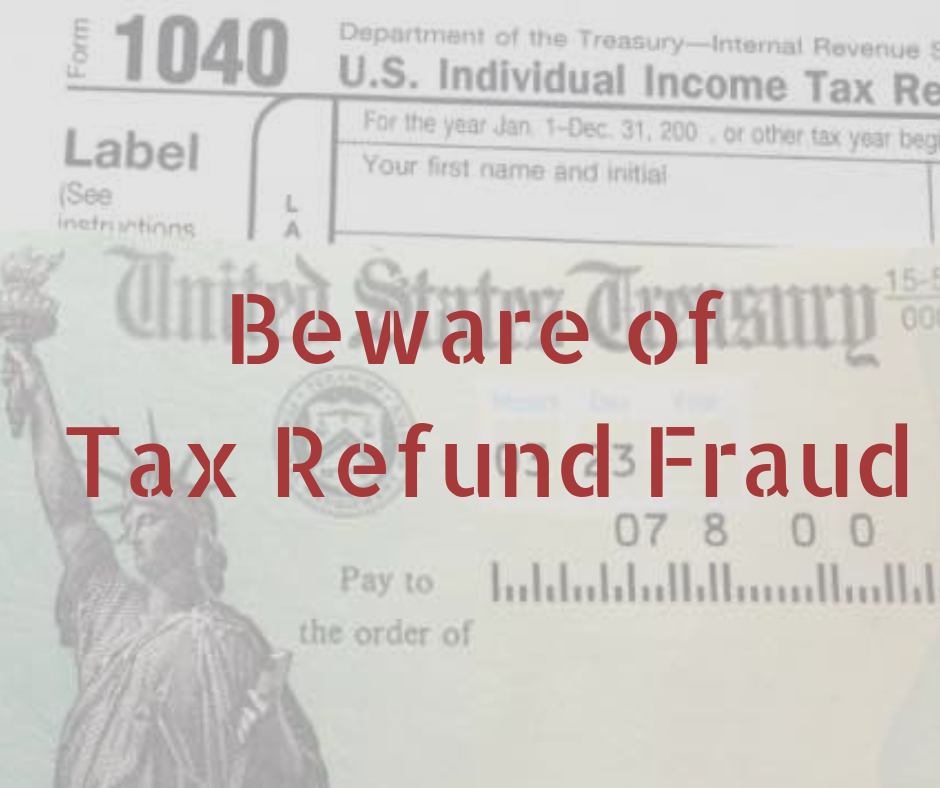It’s that time of year again, tax season. While citizens and corporations dread gathering up W2s, 1099s and various financial statements for filing, guess who is looking forward to it – tax scammers. They prey on our fear of an audit and the natural weight of “authority” any correspondence from the IRS instills in the American or corporate taxpayer. Don’t be fooled. Learn what to watch out for to detect a scam and protect your identity and/or the identity of your employees/clients.
Types of Tax Fraud
Aside from intentional fraud done by a corporation or individual, there are multiple types of tax fraud that are committed by outside parties. If not blocked or caught in time, a taxpayer can irrevocably be schemed out of their legally earned money.
According to Internal Revenue Service (IRS), there were approximately $46 million claimed in fraudulent refunds during the 2018 filing season. There were also 2,204 confirmed falsified tax returns involving identity theft.
To ensure an individual taxpayer or business does not become a victim of tax refund fraud, be aware of the following methods utilized to commit tax fraud:
- Fake calls from the Taxpayer Advocate Service (TAS)
- “Ghost” tax return preparer
- “Tax Transcript” email scams
- Scams related to helping victims of recent natural disasters
- Email phishing scams
- “Verify” calls mimicking IRS Taxpayer Assistance Centers
Overall, be cautious when asked for sensitive information, especially when it contains social security numbers (SSN) and business employee identification numbers (EIN).
Be Cautious and Protective
Protecting personal and/or employee identities boils down to common sense. As soon as the IRS tightens the reigns on tax scammers, these clever thieves come up with new and inventive ways to scam legal citizens out of their hard-earned money.
Not only are individuals and businesses targeted, tax preparers are especially at risk for data breaches. Make sure to:
- File early so tax refund scammers do not “beat” you to the refund
- Verify email or other requests that appear to come from a tax preparer and/or payroll/human resource personnel
- Never click on a link from an unfamiliar email
- Only access sensitive accounts and personal information while connected to a secure network (NEVER use free Wi-Fi)
- Protect and routinely update a business’ network from Malware
- Always use strong passwords
If contacted by the “IRS”, take caution and learn the proper way they will contact you if needed.
What the IRS Will Never Do
When we receive correspondence from the IRS, it’s easy to get a little alarmed, however, use caution first. In fact, know that the IRS will never:
- Call, text, use social media or email to contact you
- Demand immediate payment or wire transfer of money
- Threaten to have the police or any type of law enforcement come to your place of business/home
- Ask for payment via gift card or another method of payment (e.g. bitcoin)
- Visit in person asking for payment (if this happens, ask for pocket confirmation and HSPD-12 card for verification)
The IRS is part of the government after all, and the government loves a paper trail. If the request is urgent, requiring immediate action, “sound the alarm”! If you suspect you are a victim of tax refund fraud:
- Contact the IRS by calling the Tax Fraud Hotline 1-800-829-0433
- Write VOID on an unexpected tax refund check and mail to a valid address for the IRS service center or state tax authority (never use the address on the envelope the check was received in)
- Contact your bank to see if any unknown deposits have been made to your account
When it comes to being contacted by the IRS or another department/organization that works closely with the IRS, the best rule of thumb is: if it doesn’t look or feel right, it probably isn’t right. Delete and/or hang up! Protect yourself first and worry about offending the requester last.
Timothy Dimoff – Speaker, National Expert, Author
Tim Dimoff’s engaging and thought-provoking presentations are sure to enlighten, inform and move you into taking action on such critical issues as workplace risks, substance abuse, security and societal threats. Feel free to contact Tim today to speak at your organization.
